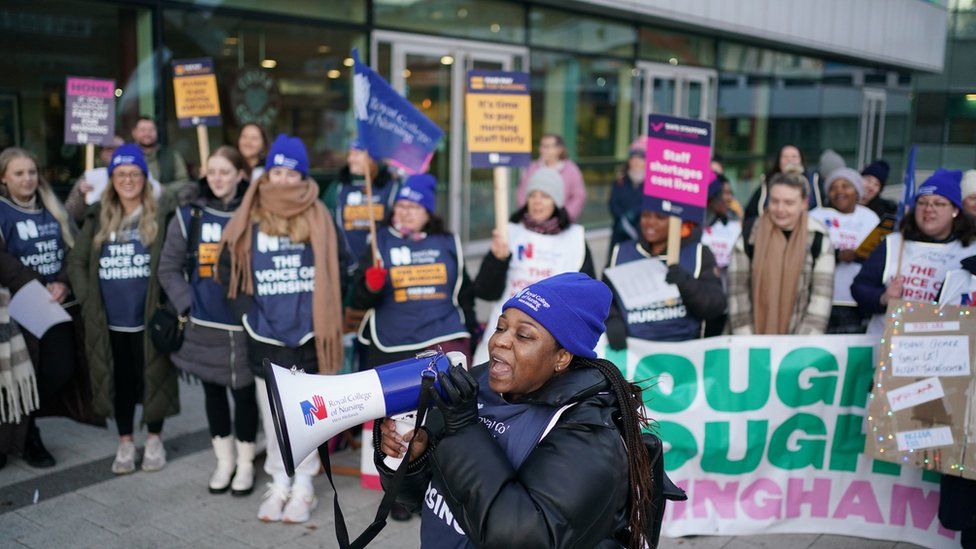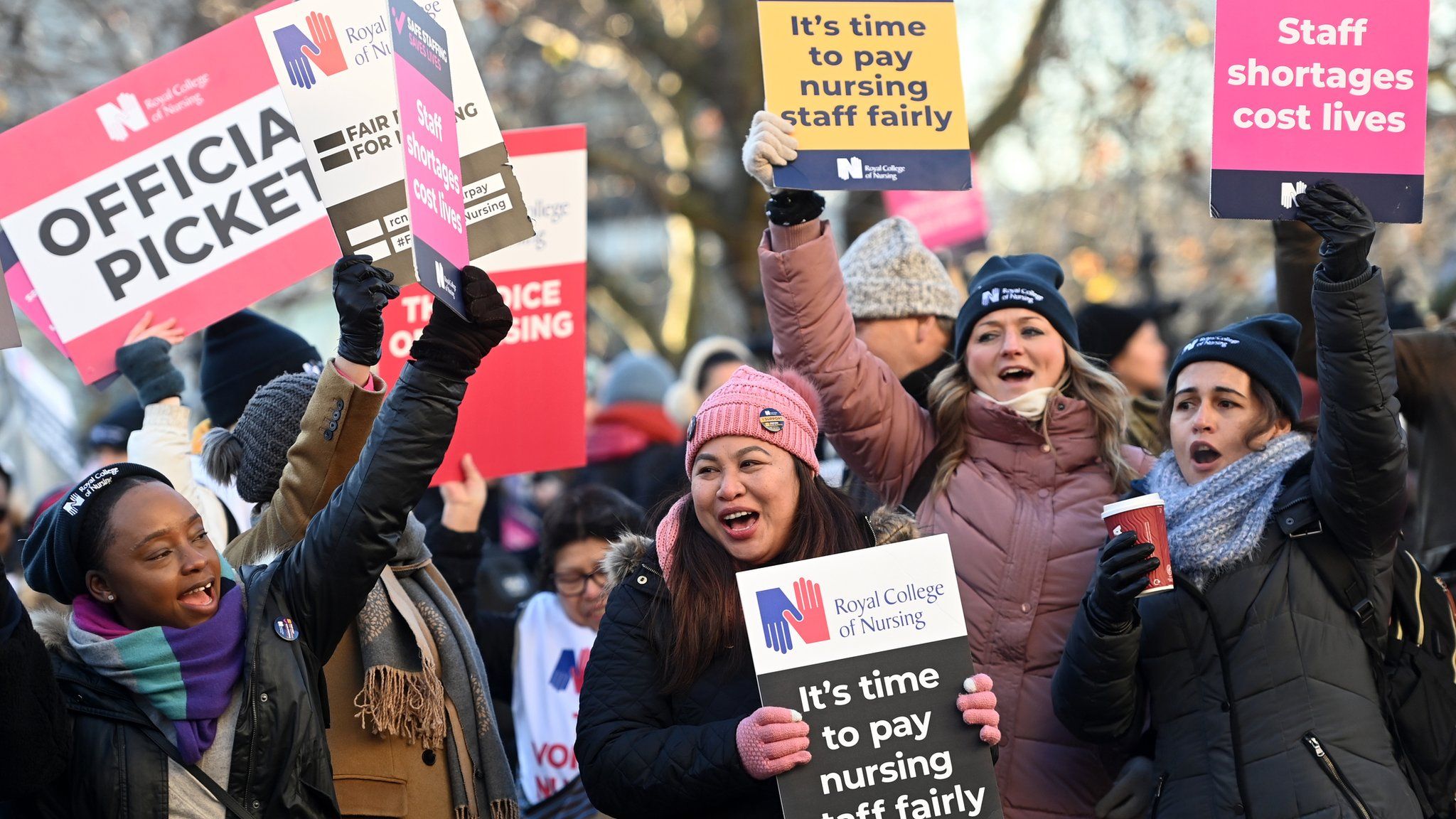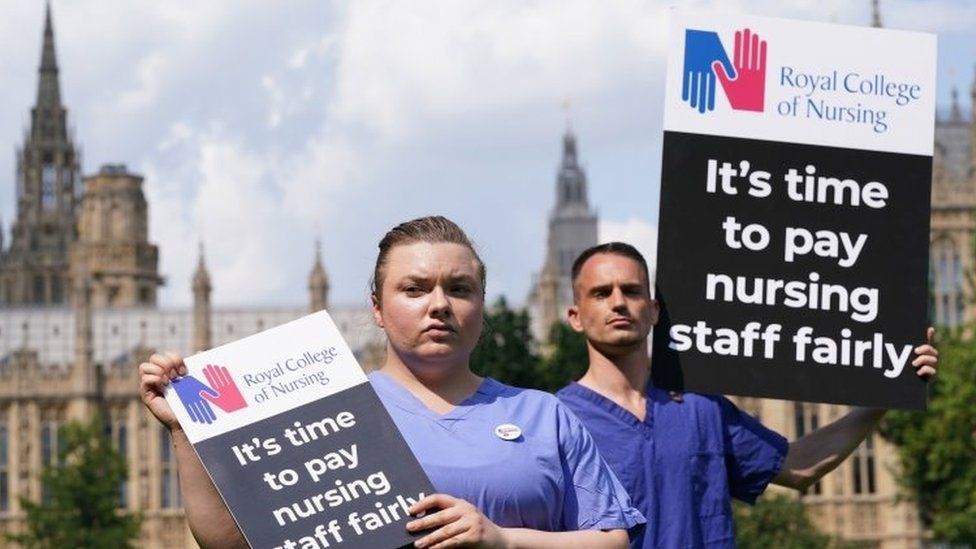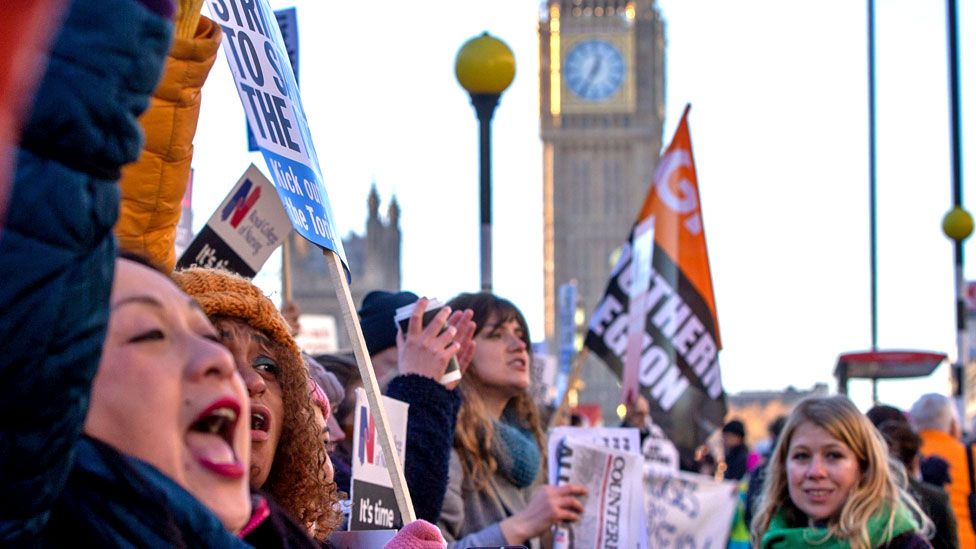Rishi Sunak refusing to budge on pay as strike action escalates

Rishi Sunak has insisted he will not back down against striking workers, as nurses walk out in England, Northern Ireland and Wales for a second day.
Nurses’ union boss Pat Cullen has urged the prime minister to resolve the crisis before Christmas.
But there is no sign of a breakthrough between the sides.
In a Mail interview, the prime minister indicated he would rather accept widespread disruption than increase pay and risk fuelling inflation.
The UK is facing its biggest week of industrial strikes in recent history in the run up to Christmas, with ambulance workers, customs and immigration staff, bus drivers and postal workers all staging walk outs.
The armed forces have been drafted in to cover some jobs – but concern is growing about Wednesday’s ambulance drivers strike in England and Wales, with a health minister warning people to avoid “risky activity”.
Head of the NHS confederation, and a former Labour adviser, Matthew Taylor has warned that hospital leaders “cannot guarantee patient safety” during the strikes.
In a letter to Mr Sunak, he said: “It is clear that we have entered dangerous territory and we hope this warning from NHS leaders should serve to focus minds in government and in the unions that a swift resolution to this damaging dispute is needed.”
- LIVE: Thousands of nurses stage second day of strikes
- Train drivers announce new January strike date
- Are pay review bodies completely independent?
- Millions of workers get below-inflation pay rises
This video can not be played
To play this video you need to enable JavaScript in your browser.
Mr Sunak is facing calls to reopen talks on nurses’ pay and deal with the growing wave of strikes across the public services.
But he told The Mail: “I’m going to do what I think is right for the long-term interests of the country – combating inflation.”
Ministers have also argued it would be wrong to unpick the wage levels, which were set by the pay review bodies earlier this year.
The prime minister said unions should instead focus on future pay negotiations adding: “We do need to think about what’s the right approach for next year.”

Prospects for peace

There are two things I can see as potential olive branches here.
One is some sort of one-off payment to recognise the cost of living pressures.
Downing Street has been playing that down over the past 24 hours, saying it’s certainly not on the table at the moment.
The other thing which the government keeps talking about is next year’s pay deal and perhaps some movement on that – some tinkering of how that could be calculated.
But that’s not good enough for the unions.
I’ve asked a lot of people in government over the last few days what the end game is for the government and I don’t think there’s a clear answer, apart from hoping that the unions end up accepting the current deal and then get back around the table to discuss a new deal for next year.

Speaking to the BBC’s Today programme, Ms Cullen said she was “truly sorry” for every patient who would have their care disrupted during Tuesday’s strikes.
“We would negotiate with government – again we won’t dig in if they don’t dig in.
“But we have no opportunity to do that because we can’t get to a table to talk to government.”
This video can not be played
To play this video you need to enable JavaScript in your browser.
In a statement released ahead of the strikes, Ms Cullen said she believed the dispute could get “wrapped up by Christmas” if ministers engaged with union talks.
However, she warned that if the government wasn’t “prepared to do the right thing” her union would have “no choice” but to continue striking in January.
The Royal College of Nursing has called for a 19% pay rise (5% above the RPI inflation rate) but the government has said this is unaffordable.
Ambulance staff – who are set to walk out on Wednesday – also want above-inflation pay rises, but have not set a specific figure.
Health Secretary Steve Barclay is due to meet health unions, however it is expected these talks will not touch on pay, but rather focus on how emergency care will be provided during the strikes.
-
Are pay review bodies completely independent?
-
4 days ago

-
-
Millions of workers get below-inflation pay rises
-
19 July

-
-
Would every 1% rise to nurses’ pay cost £700m?
-
2 days ago

-
Published at Tue, 20 Dec 2022 10:59:42 +0000
